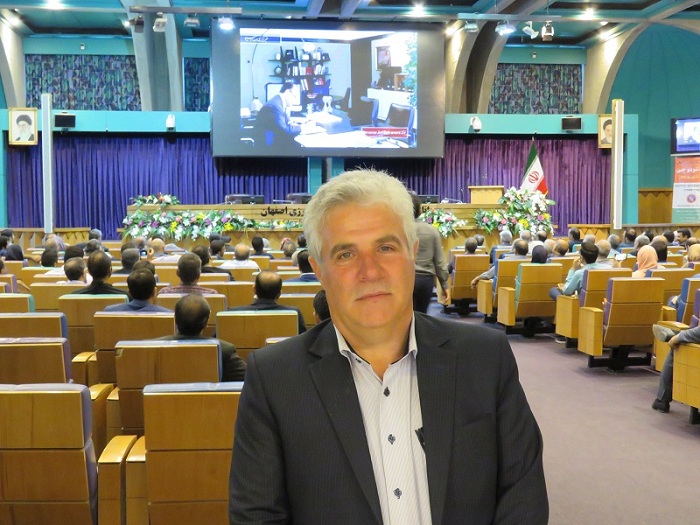Isfahan stones supplied by Italy and China brand in the world

Head of the Isfahan Stone Association: Today many stones in Isfahan such as Lashkar Isfahan with Italian brand and some stones with Chinese brand are marketed.
According to Iran's Stone Exhibition, Reza Ahmadi said that unfortunately, one of the problems of the raw material industry related to raw materials is that we should turn away from political commodities such as oil during the sanctions period. It is a bloc that is exported to foreign countries at a reasonable rate, causing 60% of the stone industry to fall and fail to fulfill its obligations.
He added that the supreme leader in the export sector has repeatedly stressed that crude sales are a problem, adding: "Unfortunately, today's stone industry is plagued by mafia and crude is exported at a reasonable rate and naturally maneuvering when it is scarce." it is decreasing.
Head of Iranian Stone Association Head of Iranian Stone Association explained: During the years 1 and 2, we had about 500,000 tons of copper export in the country, but now it has reached over one million tons and production has not increased at the same rate, also in countries like Turkey, China, and others who claim to be in the stone industry, because of our raw materials, they drive customers to their products.
According to Ahmadi, many of the stones in Isfahan today, such as the Isfahan Lashter with the Italian brand and some with the Chinese brand, are being marketed.
"Although fifty percent of the stone industry is not up-to-date today and their machinery is domestic, they have a high ability to process raw stone," he said.
Head of Iran Stone Association Head of Iranian Stone Association, believing that we need a long-term plan to solve this problem, said: "Crude exports cannot be stopped at once because the minerals are damaged, but in a multi-year plan on precious process production and production." Moving higher in the stone industry.
Referring to the harsh conditions of the industry with regard to sanctions, he said: On the other hand, some government agencies place a number of pressures on industrialists and the manufacturing sector, as they themselves are involved in problems such as shortages.
Believing that some manufacturing problems today require laws or amending the law, Ahmadi explained: For example, a social security agency arbitrarily withholds several installments, seizes accounts and cripples the producer.
He said: "I believe that the tough times of sanctions should be the same for everyone, not for the private sector to be at the bottom of the pressure, and for the government to put all pressure on the private sector to produce and ultimately cause industry to collapse."
The head of the Isfahan Stone Association added: "Of course, creating some good positions and raising the dollar rate will save exports in the country, but the Commerce Department of the Ministry of Industry and Foreign Affairs should take steps towards non-oil exports.
"That is why we have to look at marketing for that time and find good customers so that we can reduce the amount of sanctions and do not always have the chance to improve our political relations and the dollar fall," he said. Let's offset the dollar rate.
Ahmadi emphasized that due to the exchange rate, the low prices of our goods are now being cheaper for other countries, he emphasized: This is an opportunity to be taken as a trophy, in addition to sanctions, problems and money transfers, export boom Of course, for that to happen, we need a solution to get the industry involved instead of the domestic market.
He advised: The State Department could provide subsidized support for the presence of industry and production at foreign exhibitions to market this sector by attending these exhibitions and focus on out-and-out markets rather than marginal markets such as Iraq and Afghanistan.
* ISNA










